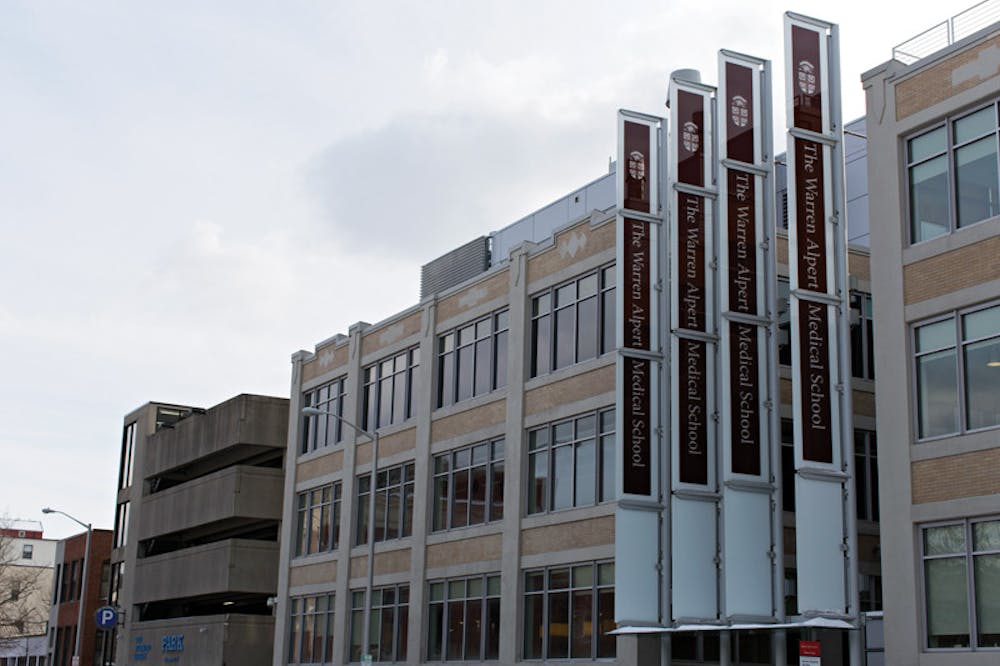Tens of thousands of people flee their home countries every year to avoid persecution, seeking asylum in the United States. But the United States does not grant asylum to all of these individuals because many of them lack hard evidence of abuse.
For this reason, the Brown Human Rights Asylum Clinic hosted a training event Saturday to educate more physicians on how to provide pro-bono forensic evaluations to people seeking asylum in the United States.
The clinic plans to use this training day as a launch pad for expanding its presence in Rhode Island. “This training is the starting ground for our Human Rights Clinic. We’re starting pretty much from scratch and building our bases of support,” said Rebecca Slotkin MD’16, co-executive director of the Brown Human Rights Asylum Clinic. “Until recently, this type of training for physicians didn’t really exist, so the resources available to them were much more limited.”
Currently, there are only three physicians in Rhode Island who belong to the Physicians for Human Rights network and who qualify to conduct forensic medical and psychological evaluations, Jillian Tuck, asylum program manager in Boston for Physicians for Human Rights, told The Herald.
Refugees often face great struggles when trying to provide proof of persecution without a medical exam, she said.
“Sometimes (refugees) flee their country in the middle of the night, and they don’t have anything but the clothes on their back, so they don’t have the evidence they need,” Tuck said. “They don’t make photocopies of death threats, and they don’t take photographs of the license plates of the people that kidnapped them or whatever the situation is, so they often have very little to submit to the court.”
Signed affidavits from licensed physicians are often the only thing people have to help make their case for asylum, as their “physical scars and psychological evidence” need professional evaluation for credibility, Tuck said.
“So it’s really important that we have the expertise of health professionals to see this population and document the only evidence that really exists that corroborates their story,” she added.
The training program consisted of several different presentations, including one from Tuck entitled “Asylum Law and Human Rights.” Her talk was followed by presentations on gynecological and psychiatric evaluation training and an explanation of the medical affidavit and court preparations. The day ended with a panel discussion on the experiences of asylum seekers.
At the beginning of the program, the 72 audience members each spoke about themselves, their professions and what they hoped to get out of the day’s training. Attendees ranged from practicing physicians and forensic psychologists hoping to expand their areas of expertise to lawyers seeking more information on creating asylum affidavits. Medical school students interested in human rights or learning about another branch of medicine also attended.
Joseph Rabatin, associate professor of medicine and one of the panelists, called the event “a wonderful opportunity for lawyers and doctors to work together.”
Many of the audience members spoke amongst themselves about their satisfaction with the event, but some expressed a desire for a more focused end to the training, with separate medical and legal discussion groups.
Overall, the event was “really comprehensive, and gave everyone who attended a feeling that they could help asylum-seekers,” Rabatin said.
“Medical students at Brown have a lot of experience of service before they get to medical school, and I think this (event) really gave them a place to satisfy their hunger for service,” he said.
Though undergraduates were not eligible to attend the training, pre-medical students said they were interested in learning more about the topic.
“I think it would be interesting to hear about, even if it’s just to understand a different realm of medicine that you can go into,” Caryn Cobb ’15 said.
Leah Pierson ’16 said, “I definitely would like to work with people all over the world, and it would be kind of cool to have people from developing countries coming to the U.S. and seeing what they’ve been through.”

ADVERTISEMENT




